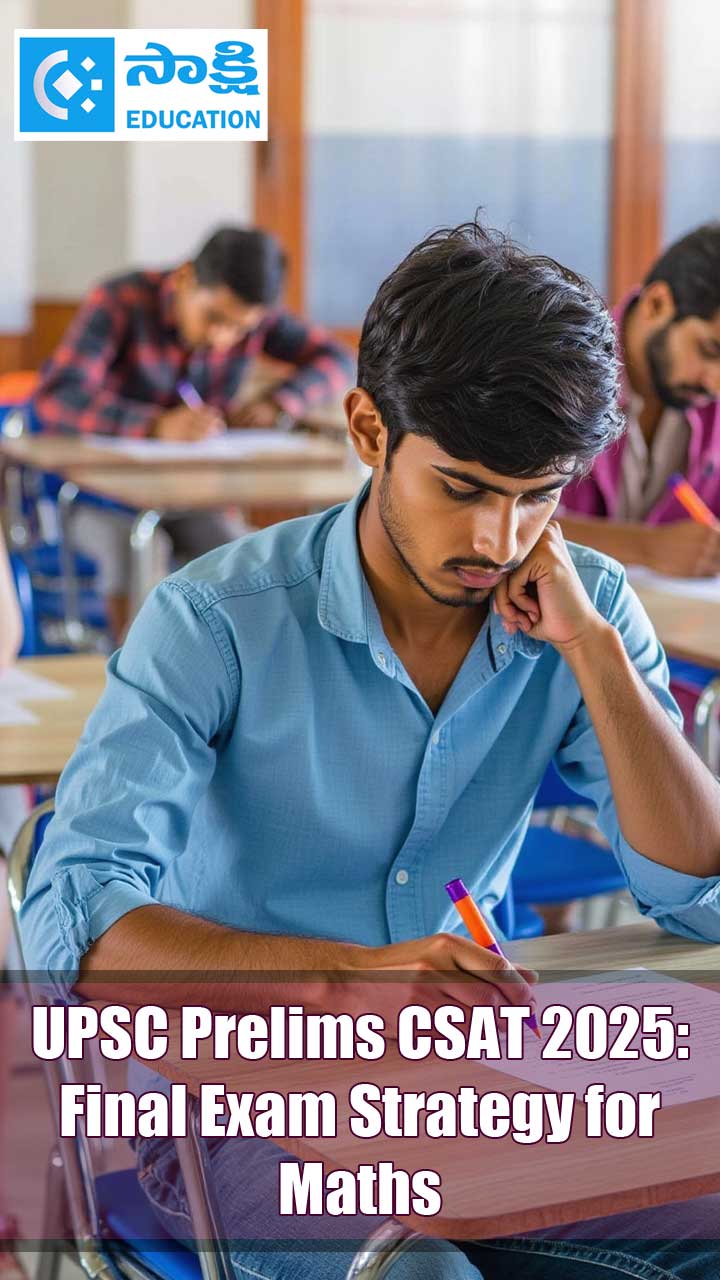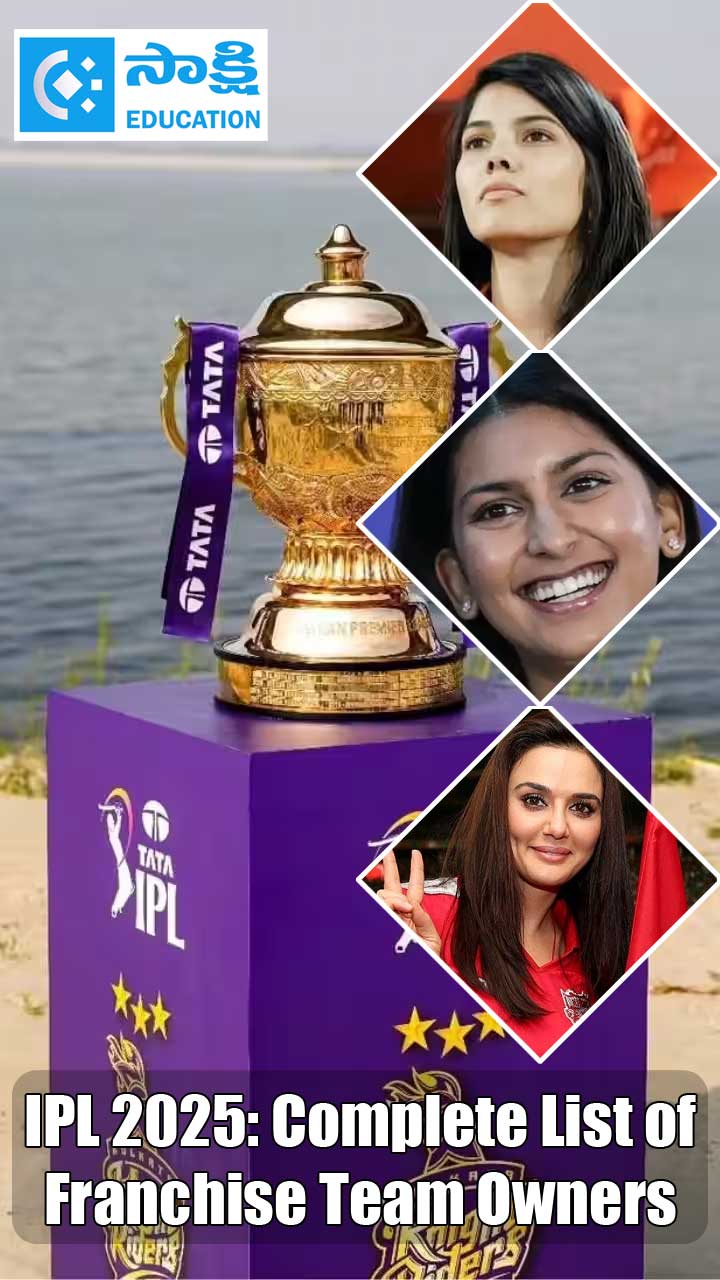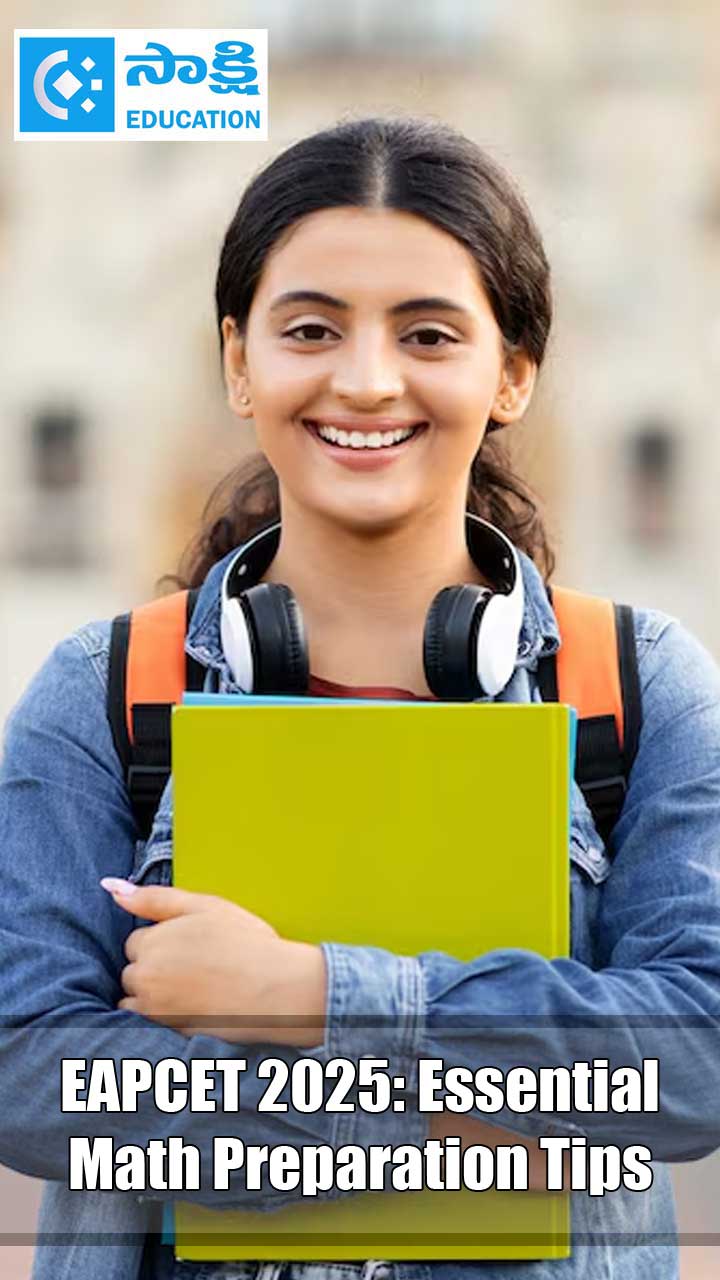Facing Interviews
Sakshi Education

By
GSRK Babu Rao
Interviews are a source of dread for many people! With careful preparation and planning, you can turn the situation to your advantage and actually start to enjoy and exploit interview situations. Let us look at a number of different areas that will help you when you attend your interview.
An interview is a formal meeting wherein a group of persons meet a person for evaluating him or her. The appraisal could be for appointment to a new job or for an assignment or for promotion. Though the purposes vary, the procedure is more or less similar -- The group asks questions and the person answers them. The purpose of an interview is to find out the candidate’s views, subject knowledge, ideas and attitudes and above all communicative skills.
Why Interviews?
For the purpose of jobs, candidates are called for interview in a ratio to the vacancies available, which is usually 1:3 or 4. Therefore, the interviewee should be well prepared for the interview lest he should be one of the those found unsuitable. It is an extension of written test (if there is one) and the main purpose to assess the applicant’s suitability - general behaviour, personality, and ability to communicate effectively, his/her sensitivity to the society and contemporary social issues and genial attitude. Some candidates stammer, some have bad or wrong manners, some have very unintelligible pronunciation, some take undue pauses while speaking and above all, some are not able to express themselves and fail to convey what they mean or want to say. All such shortcomings can be detected during the interviews. The way a candidate moves, walks, dresses, goes a long way to help to have an idea about the "the woman/ man in him/her". In other words, the viva voce examination helps the screening authorities to select a proper candidate for a particular job. A candidate may be a first class holder all through his academic career, but may not be able to do well at the interview. Hence is not selected. On the other hand, an average candidate can do very well at the interview and get selected. Therefore, interviews play a pivotal role in the selection process. Therefore, anyone seeking a job should realise that interview is very crucial and a useful medium for the total selection process. It is therefore, essential for the candidates to prepare well for the interviews.
Firstly, we'll take a reflective look of what the interviewer is looking for. We will also look into more details at things you should and should not be doing during the course of your interview. Things you should and should not say.
We will also look in more detail at body language and its effect at an interview and how you can use it to your advantage.
The key characteristics that the interview board members look for are -- Problem Solving Ability, Communications Skills, Motivation and Self Analysis.
Personal Interviews
Good Preparation is half done
Unless you are confident you will not be able to take the interview confidently. For the confidence to grow, you need preparation.
Find out about the company
Normally the company’s website gives most of the information. If you are being interviewed for a senior position, you should try to get more information even about the company’s performance and market analysis. Keep these facts ready with you while you take the interview. If you are going to attend interviews in marketing or financial companies you may focus on the following areas:
Interviews are a source of dread for many people! With careful preparation and planning, you can turn the situation to your advantage and actually start to enjoy and exploit interview situations. Let us look at a number of different areas that will help you when you attend your interview.
An interview is a formal meeting wherein a group of persons meet a person for evaluating him or her. The appraisal could be for appointment to a new job or for an assignment or for promotion. Though the purposes vary, the procedure is more or less similar -- The group asks questions and the person answers them. The purpose of an interview is to find out the candidate’s views, subject knowledge, ideas and attitudes and above all communicative skills.
Why Interviews?
For the purpose of jobs, candidates are called for interview in a ratio to the vacancies available, which is usually 1:3 or 4. Therefore, the interviewee should be well prepared for the interview lest he should be one of the those found unsuitable. It is an extension of written test (if there is one) and the main purpose to assess the applicant’s suitability - general behaviour, personality, and ability to communicate effectively, his/her sensitivity to the society and contemporary social issues and genial attitude. Some candidates stammer, some have bad or wrong manners, some have very unintelligible pronunciation, some take undue pauses while speaking and above all, some are not able to express themselves and fail to convey what they mean or want to say. All such shortcomings can be detected during the interviews. The way a candidate moves, walks, dresses, goes a long way to help to have an idea about the "the woman/ man in him/her". In other words, the viva voce examination helps the screening authorities to select a proper candidate for a particular job. A candidate may be a first class holder all through his academic career, but may not be able to do well at the interview. Hence is not selected. On the other hand, an average candidate can do very well at the interview and get selected. Therefore, interviews play a pivotal role in the selection process. Therefore, anyone seeking a job should realise that interview is very crucial and a useful medium for the total selection process. It is therefore, essential for the candidates to prepare well for the interviews.
Firstly, we'll take a reflective look of what the interviewer is looking for. We will also look into more details at things you should and should not be doing during the course of your interview. Things you should and should not say.
We will also look in more detail at body language and its effect at an interview and how you can use it to your advantage.
The key characteristics that the interview board members look for are -- Problem Solving Ability, Communications Skills, Motivation and Self Analysis.
Personal Interviews
Good Preparation is half done
Unless you are confident you will not be able to take the interview confidently. For the confidence to grow, you need preparation.
Find out about the company
Normally the company’s website gives most of the information. If you are being interviewed for a senior position, you should try to get more information even about the company’s performance and market analysis. Keep these facts ready with you while you take the interview. If you are going to attend interviews in marketing or financial companies you may focus on the following areas:
- Products and services
- Customers
- Competitors
- Past performance record
- Recent news about expansion, mergers, performance and share price movements
- Outline of the company, current projects.
- Annual reports
Magazines such as The Economic Times, The Business Week, Business Today, The Financial Times, Dalal Street Journal could be consulted. These will help you to answer questions like:
What do you know about our company?
Why do you want to work for us?
Keep a copy of your portfolio ready
Keeping a portfolio of yours is a good technique. It contains evidence to back up your claim. A well-maintained portfolio gives a good impression of yourself for the systematic work done by you. Some people go through such things and even ask questions on certain items in the portfolio. Neat lightweight folders with transparent folios are available in plenty.
You could put your
What do you know about our company?
Why do you want to work for us?
Keep a copy of your portfolio ready
Keeping a portfolio of yours is a good technique. It contains evidence to back up your claim. A well-maintained portfolio gives a good impression of yourself for the systematic work done by you. Some people go through such things and even ask questions on certain items in the portfolio. Neat lightweight folders with transparent folios are available in plenty.
You could put your
- Updated cv at the beginning.
- Copies of your degrees and diplomas and certifications.
- Copies of your passport, PAN card, driving license.
- Your previous employers in a chronological order (latest first)
- The projects you have done, your achievements (Keep CDs/DVDs if you wish)
- Seminars attended, honours bestowed on you, testimonials for your good work etc.
- Your personal vision statement and career and professional growth which you have achieved.
Overcoming Nervousness
It is quite natural to be nervous and tense before the interview. In fact, experts say that if you are slightly tense, it sharpens your performances and enhances your reflexes. Too much of tension spoils even advance preparation.
You should remember that you will be interviewed in the area you are specialized in. Normally, there will be nothing very new to you. All that required is to make a good presentation of what is known to you and impress the interviewers of your capability and knowledge in the area.
Take deep breathes just before interview. Close your eyes and imagine a pleasant scene. Do not try to mumble prayers. That will cause more tension. Instead, close your eyes, think of your favourite God.
Please remember that you always have another chance if you can’t succeed in one. Only the fallen can rise!
Your Body Language
Body language gives out one’s sub-conscience. It gives vital signals to the other person(s), even if you do not utter a single word. The board can form an opinion from how you enter the interview room, how you greet them, how you dress yourself, how you sit (posture), how confident your eyes are, how disinterested you are, how honest you are etc etc. Unless you feel what you say, your body language gives you out.
The interviewers can make a judgement on you, based on these visual signals. It is true that most of the times; you will be assessed in the first two minutes of your meeting. It’s called the ‘halo’ effect.
Dressing for the Interview
Wearing decent clothes means showing respect for the board. Casual dressing reflects casual attitude towards the interview. Dress well. Personal grooming and hygiene are important. You should be immaculate. Your mannerisms will supplement your physical grooming. Do not smoke before the interview. In spite of mints, you still would reek of tobacco. Some people smoke to ward off tension. Please avoid this. No chewing gum please during the interviews. Do not use any caps. They are very casual.
Attire for Men
For executive positions, a full-sleeve shirt with a tie is enough. Needless to say that the shirt to be tucked and the sleeves should not be rolled up. A dark pant and a light coloured shirt or a checked (small checks) shirt serves the purpose. A silk tie that is stripped or one with small dots would be fine. No patterned or designed ties should be used as they look gaudy. Polished, laced, black shoes will be ideal, though brown shoes can pass off. Well-ironed and clean shirt, neatly knotted tie, shining shoes and well kempt hair will be the ideal attire. Jeans and T shirts are not accepted as formal dress. Do not try to use gels and give spiked style to your hair. Whatever is the season, wear a vest. A clean white vest will brighten the colour of your shirt besides absorbing the sweat. No strong smelling deodorants or sprays should be used. Please note that expensive clothes are not a prerequisite nor is modest attire. Wear something that is not fanciful. Collarless shirts, half sleeve shirts, unbuttoned shirts¬ especially the top two buttons, faded shirts, bathroom slippers, chappals, unpolished shoes, unshaven face, uncombed hair, greasy hair - all are contributors for negative impression at the time of interview. Don’t show off with rings and bracelets.
Attire for Women
Women usually dress in a sari or salwar kameez. The guiding principle is to wear clothes that are not dazzling as are used for an evening party. Neat silks with a good blouse with conservative neckline will be ideal. Younger candidates may however prefer salwar kameezs. Whatever is worn it should look elegant but not showy. People should focus on your performance rather than your attire. Light make-up with pleasant lipstick is quite acceptable. On no account jeans should be worn for interviews. No heavy jewellery and clinking bangles, especially for software people. They keep making noise as they key in. One ring and one thin and plain chain is just the expected jewellery. Make a distinction between attending a wedding party and an interview.
Reach well before the time!
Allow yourself plenty of time to get to the interview, especially if you have a long journey. It is worth remembering that your late arrival could upset the carefully planned timetable. If you arrive late, you may well be mentally and physically restless and this will not help you to give your best efforts during the interview itself.
It is quite natural to be nervous and tense before the interview. In fact, experts say that if you are slightly tense, it sharpens your performances and enhances your reflexes. Too much of tension spoils even advance preparation.
You should remember that you will be interviewed in the area you are specialized in. Normally, there will be nothing very new to you. All that required is to make a good presentation of what is known to you and impress the interviewers of your capability and knowledge in the area.
Take deep breathes just before interview. Close your eyes and imagine a pleasant scene. Do not try to mumble prayers. That will cause more tension. Instead, close your eyes, think of your favourite God.
Please remember that you always have another chance if you can’t succeed in one. Only the fallen can rise!
Your Body Language
Body language gives out one’s sub-conscience. It gives vital signals to the other person(s), even if you do not utter a single word. The board can form an opinion from how you enter the interview room, how you greet them, how you dress yourself, how you sit (posture), how confident your eyes are, how disinterested you are, how honest you are etc etc. Unless you feel what you say, your body language gives you out.
The interviewers can make a judgement on you, based on these visual signals. It is true that most of the times; you will be assessed in the first two minutes of your meeting. It’s called the ‘halo’ effect.
Dressing for the Interview
Wearing decent clothes means showing respect for the board. Casual dressing reflects casual attitude towards the interview. Dress well. Personal grooming and hygiene are important. You should be immaculate. Your mannerisms will supplement your physical grooming. Do not smoke before the interview. In spite of mints, you still would reek of tobacco. Some people smoke to ward off tension. Please avoid this. No chewing gum please during the interviews. Do not use any caps. They are very casual.
Attire for Men
For executive positions, a full-sleeve shirt with a tie is enough. Needless to say that the shirt to be tucked and the sleeves should not be rolled up. A dark pant and a light coloured shirt or a checked (small checks) shirt serves the purpose. A silk tie that is stripped or one with small dots would be fine. No patterned or designed ties should be used as they look gaudy. Polished, laced, black shoes will be ideal, though brown shoes can pass off. Well-ironed and clean shirt, neatly knotted tie, shining shoes and well kempt hair will be the ideal attire. Jeans and T shirts are not accepted as formal dress. Do not try to use gels and give spiked style to your hair. Whatever is the season, wear a vest. A clean white vest will brighten the colour of your shirt besides absorbing the sweat. No strong smelling deodorants or sprays should be used. Please note that expensive clothes are not a prerequisite nor is modest attire. Wear something that is not fanciful. Collarless shirts, half sleeve shirts, unbuttoned shirts¬ especially the top two buttons, faded shirts, bathroom slippers, chappals, unpolished shoes, unshaven face, uncombed hair, greasy hair - all are contributors for negative impression at the time of interview. Don’t show off with rings and bracelets.
Attire for Women
Women usually dress in a sari or salwar kameez. The guiding principle is to wear clothes that are not dazzling as are used for an evening party. Neat silks with a good blouse with conservative neckline will be ideal. Younger candidates may however prefer salwar kameezs. Whatever is worn it should look elegant but not showy. People should focus on your performance rather than your attire. Light make-up with pleasant lipstick is quite acceptable. On no account jeans should be worn for interviews. No heavy jewellery and clinking bangles, especially for software people. They keep making noise as they key in. One ring and one thin and plain chain is just the expected jewellery. Make a distinction between attending a wedding party and an interview.
Reach well before the time!
Allow yourself plenty of time to get to the interview, especially if you have a long journey. It is worth remembering that your late arrival could upset the carefully planned timetable. If you arrive late, you may well be mentally and physically restless and this will not help you to give your best efforts during the interview itself.
Published date : 10 Oct 2011 03:48PM



















